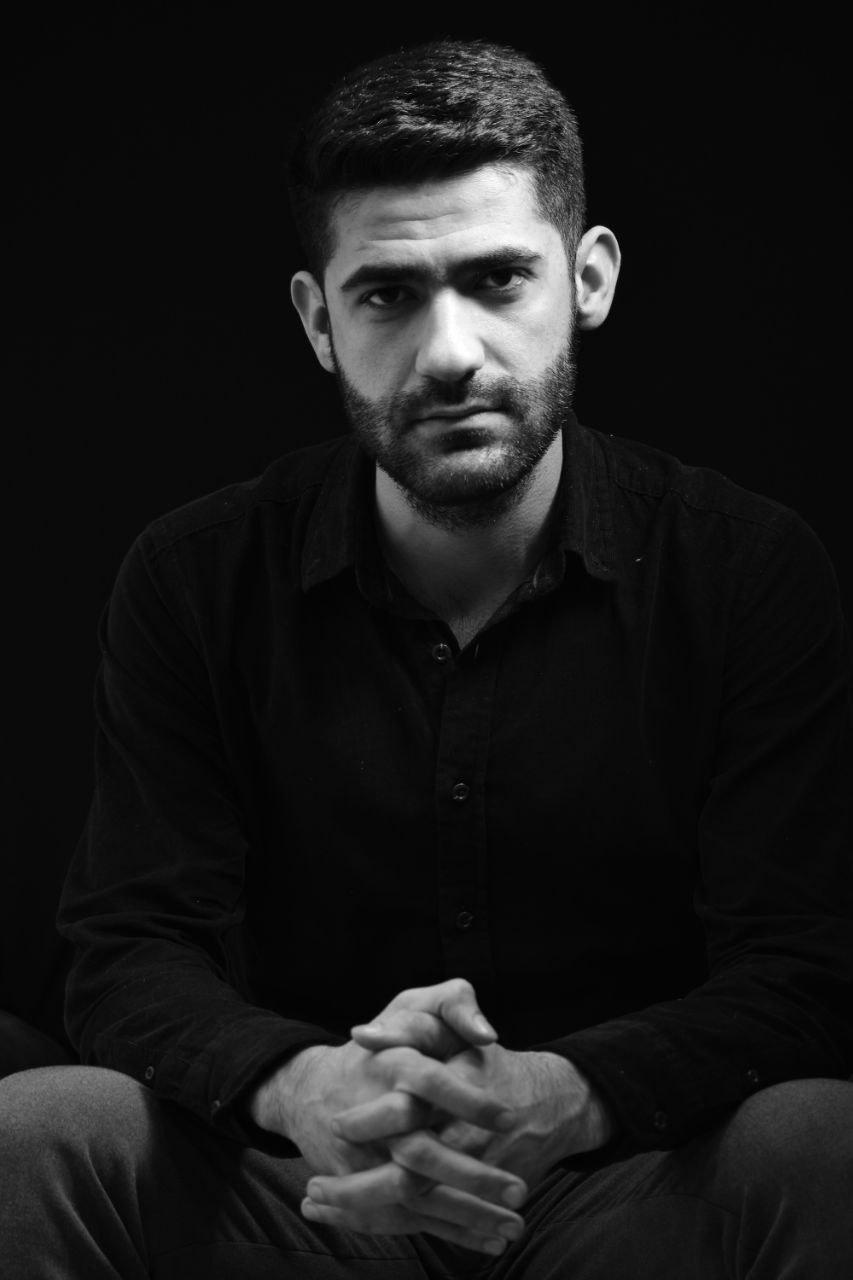في بيئة معقدة ومتغيرة، يجد الصحفي الاستقصائي نفسه في العراق يخوض معركة البحث عن الحقيقة، تبدأ من صعوبة الوصول إلى المعلومات، وتنتهي بالمضايقات والعراقيل التي تؤطر تجربته.
في مُواجهة هذه التحديات، يضطر الصحفيون العراقيون إلى الاتجاه نحو "المصادر المفتوحة" بوصفها بديلا للحصول على المعلومات وإثبات فرضيات تحقيقاتهم. فهل تُشكل هذه المصادر منقذا للصحافة الاستقصائية في العراق أم إنها تُخفي وراءها تحديات جديدة وأخطارا مُحتملة؟
غياب قانون حق الحصول على المعلومة
يُشكل الوصول إلى المعلومات حجر الزاوية في الصحافة الاستقصائية، وفي ظل غياب قانون ينظم حق الحصول على المعلومة في العراق، وتعقيدات البيروقراطية، إضافة إلى ثقافة كتمان المعلومات التي تُسيطر على العديد من المؤسسات الحكومية، تصبح المهمة أصعب.
يُشكل الوصول إلى المعلومات حجر الزاوية في الصحافة الاستقصائية، وفي ظل غياب قانون ينظم حق الحصول على المعلومة في العراق، وتعقيدات البيروقراطية، إضافة إلى ثقافة كتمان المعلومات التي تُسيطر على العديد من المؤسسات الحكومية، تصبح المهمة أصعب
على الرغم من وجود مسوّدة لقانون الحق في الحصول على المعلومة منذ عام 2004، فإنها لا تزال حبيسة أدراج مجلس النواب العراقي. هذا الغياب يضع الصحفيين في مواجهة فراغ قانوني، يُجبرهم على الاعتماد على العلاقات الشخصية أو الوساطات للحصول على المعلومات، ما يُعرضهم للمساومات ويقيد استقلاليتهم.
وحتى إذا تحققت طموحات الصحفيين في الحصول على المعلومة، فإن تطبيقه على أرض الواقع سيواجه كثيرا من التحديات، مثل ثقافة كتمان المعلومات المُتجذرة في العديد من المؤسسات الحكومية، وغياب آليات فعالة للتظلم والمُساءلة، وهي عوامل تعوق حق الصحفيين في الوصول إلى المعلومات.
تهدف مسودة القانون التي طُرحت للنقاش في البرلمان العراقي خلال جلسته الـ8 من الفصـــل التشريعـــي الأول السنـة التشريعية الثالثة الـــدورة الانتخابية الخامسة لسنة 2024 إلى تنظيم حق الوصول إلى المعلومات الحكومية، ووضع آليات واضحة للحصول عليها.
تتضمن المسودة بنودا تُلزم المؤسسات الحكومية بالرد على طلبات الحصول على المعلومات ضمن فترة زمنية محددة، وتُحدد الاستثناءات التي يمكن للمؤسسات التذرع بها لرفض طلب المعلومات، مثل الأمن القومي أو الخصوصية الشخصية. كذلك تنص المسودة على إنشاء هيئة مستقلة تُعنى بتلقي الشكاوى المتعلقة برفض طلبات الحصول على المعلومات، والتحقيق فيها، وإصدار التوصيات اللازمة.
إلا أن هذه المسودة لا تخلو من نقاط الضعف؛ فقد أشار بعض الصحفيين ومنظمات المجتمع المدني إلى غموض بعض بنودها، وإمكانية استغلالها من قبل الجهات الحكومية للتملص من توفير المعلومات، معربين عن مخاوفهم من عدم فاعلية آليات التظلم والمُساءلة في حال رفض طلبات الحصول على المعلومات.
تخشى الصحفية زينب المشاط أن يحتوي القانون دائمًا على استثناءات تحمي المؤسسات والمسؤولين الإعلاميين في الوزارات من تزويد الصحفيين بالمعلومات، واستمرارهم في التملص من الإجابة عن أسئلتهم، مثلما تفعل باستمرار وزارة الصحة العراقية على سبيل المثال.
وترى الخبيرة القانونية والصحفية الاستقصائية منار الزبيدي أن "قانون حقوق الصحفيين العراقيين رقم (21) لسنة 2011 قد ضم في مواده العديد من الحقوق، ومنها الحق في الحصول على المعلومات، ولكنها مقيدة وفق ما يسمح به القانون، وإذا ما صيغَ بمهنية رصينة فسيسهم كثيرا في وصولنا إلى المعلومات المحجوبة، ويزيح من أمامنا مزاجية بعض الجهات التي تعوق حصولنا على المعلومات".
تتجسد أهمية القانون في تعزيز المساءلة وتحقيق العدالة والشفافية والاستجابة، وهي من أبرز خصائص الحكم الرشيد؛ فكلما توسعت مساحة الحق في الحصول على المعلومات زاد حجم التحقيقات الاستقصائية وتأثيرها. ورغم عدم تشريع هذا القانون حتى الآن، بسبب المؤاخذات على المسودة المقترحة، فقد تطورت الصحافة الاستقصائية في العراق بصورة كبيرة وأنتج صحفيوها من الزملاء والزميلات تحقيقات مهمة ومؤثرة كشفت كثيرا من الملفات، وفضحت كثيرا من الممارسات غير الإنسانية والانتهاكات الخطرة في مجالات مختلفة.
وعن أبرز التحديات التي تواجه تطبيق هذا القانون بفاعلية في الواقع العراقي، تعتقد منار الزبيدي أن "عدم وجود إرادة سياسية لتشريع القانون بالشكل الذي يضمن الحق في الحصول على المعلومات هو التحدي الأكبر. وقد تبنت العديد من المؤسسات الإعلامية والصحفيين والصحفيات والمنظمات غير الحكومية العاملة في مجال الدفاع عن الحقوق والحريات الصحفية حملات طالبت فيها بتشريع القانون بالصيغة الضامنة للحق في الحصول على المعلومات، ولكن في كل مرة تصطدم الجهود بعقبات سياسية قد تكون خلفها جهات حزبية تحاول تشريع قانون لا يحمل من الحق سوى الاسم، وهذا ما رفضته الجهات والأفراد العاملون في مجال الدفاع عن حقوق الصحفيين وحرياتهم في العراق".
تبنت العديد من المؤسسات الإعلامية والمنظمات غير الحكومية حملات طالبت فيها بتشريع القانون بالصيغة الضامنة للحق في الحصول على المعلومات، ولكن في كل مرة تصطدم الجهود بعقبات سياسية قد تكون خلفها جهات حزبية تحاول تشريع قانون لا يحمل من الحق سوى الاسم، وهذا ما رفضته الجهات والأفراد العاملون في مجال الدفاع عن حقوق الصحفيين وحرياتهم في العراق
ورغم هذه المخاوف، فإن طرح مسودة قانون الحق في الحصول على المعلومة يُمثل خطوة مهمة في الاتجاه الصحيح؛ ذلك أن إقرار هذا القانون وتطبيقه بفاعلية سيسهم في تعزيز مبادئ الشفافية والمساءلة، ويمكّن الصحفيين الاستقصائيين من تأدية دورهم في كشف الفساد والمُخالفات، وإعلام الرأي العام.
المصادر المفتوحة أداة في مواجهة التعتيم
في ظل التعتيم الإعلامي وتقييد الوصول إلى المعلومات، وجد الصحفيون الاستقصائيون في العراق ضالتهم في "المصادر المفتوحة"، تلك "الكنوز المعلوماتية" المتاحة للجميع، التي تُشكل سلاحا قويا في مواجهة تحديات الحصول على المعلومة.
تُعرف المصادر المفتوحة بأنها "أي معلومــة أو أرشــيف يمكــن الوصــول إليــه بحريــة مــن المجــال العــام"، بينما أجمع الصحفيون الذين قابلناهم على تعريف المصادر المفتوحة بأنها أيّ معلومة مُتاحة للجميع، مجانا أو بتكلفة زهيدة، مثل قواعد البيانات الحكومية، والسجلات العامة، ومواقع التواصل الاجتماعي، والصور، ومقاطع الفيديو، وحتى منشورات الناس العاديين على فيسبوك أو تويتر.
تُتيح المصادر المفتوحة للصحفيين الاستقصائيين فرصة الوصول إلى معلومات قد تكون مُخبأة أو غير متاحة رسميا؛ فمن خلال تحليل قواعد البيانات والسجلات العامة، ومُتابعة وسائل التواصل الاجتماعي، والتحقق من الصور ومقاطع الفيديو، يمكن للصحفيين كشف الفساد والمُخالفات، وتقديم معلومات موثوقة للجمهور.
يعتقد الصحفي الاستقصائي، أسعد الزلزلي، أن المصادر المفتوحة مهمة للحصول على أفكار بشأن التحقيقات الاستقصائية، ولكنها صعبة الوصول في العراق، "ومع ذلك، كلما كان الصحفي ذكيا، واستطاع أن يصل إلى نشرات دورية جديدة ومرتبطة على نحو غير مباشر بالتحقيق، فسيكون ذلك مفيدا. المصادر المفتوحة في العراق دائما ما تكون معرقلة وغير واضحة في الإجابة عن الأسئلة، مثل تهرب الأشخاص المعنيين عادة من التصريح وإدلاء الشهادات".
وتبلغ أحيانا أهمية المصادر المفتوحة درجة الاعتماد عليها بوصفها مصدرا مهما لإتمام التحقيق الاستقصائي. يشارك أسعد الزلزلي تجربته في الاستفادة من المصادر المفتوحة لإثبات فرضية أحد تحقيقاته "استغرقت محاولات الحصول على معلومة من إحدى المؤسسات شهورا، ثم فكرنا باللجوء لمصدر آخر، وهو سوق العراق للأوراق المالية، بذلك اختصرنا عمل أشهر في دقائق عدة؛ لذا يجب التفكير دائما في المصادر التي تخدم إثبات فرضية التحقيق ولا تعرقل سير عملية البحث خلال العمل".
تسرد الصحفية منار الزبيدي تجربتها في استخدام المصادر المفتوحة قائلة: "ساعدتني المصادر المفتوحة كثيرا في استخلاص المعلومات وتحليلها وربطها مع معلومات أخرى للوصول إلى نتائج يمكن الاعتماد عليها في المراحل الأولية للبحث والتقصي. وهذا يتوقف على إمكانية الصحفي ومهاراته وأدواته، ولكن لا يمكن الاعتماد عموما على المصادر المفتوحة جميعها، وفي كل خطوة يجب التحقق من المصادر والمعلومات. واجهت في بعض الأحيان تحدي استقصاء المعلومات الصحية خاصة إذا كانت معلومات متضاربة من مصادر متساوية في الصفة الرسمية كما هو الحال في العراق.
"استغرقت محاولات الحصول على معلومة من إحدى المؤسسات شهورا، ثم فكرنا باللجوء لمصدر آخر، وهو سوق العراق للأوراق المالية، بذلك اختصرنا عمل أشهر في دقائق عدة؛ لذا يجب التفكير دائما في المصادر التي تخدم إثبات فرضية التحقيق ولا تعرقل سير عملية البحث خلال العمل".
ولكن مع ذلك، يمكن القول إن المصادر المفتوحة ثرية بالمعلومات المهمة المؤثرة، وتساعد إلى حد كبير في وضع هيكل التحقيق والوصول إلى استنتاجات جيدة ومساحة كافية لبناء فرضيات قوية يمكن الانطلاق من خلالها لاستكمال بقية خطوات بناء التحقيق الصحفي.
تؤكد الصحفية ومدققة المعلومات تمارة عماد أن تحليل قواعد البيانات يتطلب مهارات خاصة؛ "لذلك من الضروري أن يحصل الصحفيون على التدريب اللازم في تدقيق المعلومات، لاستخدام هذه المصادر بفاعلية، ومواجهة المعلومات المضللة".
مصادر مقترحة
يمكن الإشارة إلى المصادر المفتوحة التي توفرها المؤسسات الرسمية العراقية للصحفيين والباحثين المختصين، مثل التقارير السنوية التي تصدرها الوزارات العراقية كوزارة الصحة أو موقع وزارة الصحة العراقية البوابة الإحصائية النشرات والمطبوعات.
على سبيل المثال، يُمكن للصحفيّ تحليل قاعدة بيانات الموازنة العامة للكشف عن مخالفات في الإنفاق العام، أو متابعة وسائل التواصل الاجتماعي لجمع شهادات شهود عيان على قضية ما، أو حتى استخدام أدوات التحقق من الصور للتأكد من صحة مقطع فيديو انتشر على الإنترنت واستخدام البحث المتقدم لمحرك البحث غوغل.
تقول منار الزبيدي: "يحتاج الصحفي الاستقصائي إلى تحليل البيانات، وهذا الأمر يحتاج إلى متخصص في مجال تحليل البيانات بدقة يساعد في الوصول إلى التشخيص والاستفادة منه، والاستعانة بمتخصص في مجال تحليل البيانات خصوصًا في الموضوعات المتخصصة التي تحتاج إلى دقة مضاعفة لتكون المعلومة إضافة غنية للتحقيق. وهذا ما واجهته في بعض التحقيقات التي احتجت فيها إلى خبير متخصص".
في تحقيق بعنوان "أدخنة الدورة تخنق سماء بغداد، للصحفية تمارة عماد، استخدمت الخرائط في التتبع الزمني لتناقص الغطاء النباتي في المنطقة المتضررة من التلوث والتوسع في البناء على حساب المناطق الخضراء، وكذلك استخدمت مصادر الإحصاءات الحكومية الصادرة عن الوزارات المعنية والبيانات والتصريحات الحكومية الصادرة عن جهاز الإحصاء المركزي ووزارة الصحة العراقية، وخرائط موقع skythruth التي بينت حرق الغاز المصاحب لاستخراج النفط لإثبات فرضية التحقيق.
كيف نتسلق جدار المنع؟
هناك كثير من الحواجز المنيعة التي ستواجه الصحفي العراقي الجديد في أثناء مسار إنتاج تحقيقه الاستقصائي الأول، بدءا بمواجهة التحديات الأمنية والنفسية وصعوبة الوصول إلى المعلومات، وانتهاء بتداخل المعلومات المفتوحة وتناقضها في بعض الأحيان، ويقترح الصحفي أسعد الزلزلي بعض النصائح لتفادي إهدار الوقت والجهد في إنتاج التحقيق الاستقصائي.
ينصح أسعد بضرورة التدرج في البيئة الصحفية لأنه يبني صحفيا استقصائيا ماهرا، قائلا: "عملي بصفتي مراسلا بدايةً ثم مقدما ومعدا ومنتجا في التلفزيون، سمح لي بتشكيل علاقات واسعة مع كل الأوساط ساعدتني لاحقًا. وأعتقد أنّ على الصحفي الاستقصائي أن يكون سريع البديهة وقادرا على تحليل المعلومات والوثائق والتفكير في مشروعه الاستقصائي بتركيز عالٍ"، بينما تنصح منار الزبيدي بالاستعانة بزملاء أو زميلات مختصين لتقديم المساعدة عند التعامل مع البيانات الرقمية، وهذا ليس منقصة، بل العكس؛ فالجهد التعاوني مهم جدا في التحقيقات الاستقصائية، ثم إنَّ تطوير المهارات مهم جدا، وهذا ما عملت عليه لسنوات، وما زلت أطور مهاراتي وأدواتي باستمرار لأكون مواكبة لكل التطورات، ومستفيدة بصورة كبيرة من كمية المعلومات مفتوحة المصدر ونوعيتها".
مهما كانت الظروف، فإن الصحفي في العراق مطالب بتجاوز الحصار المضروب على المعلومات إما لدوافع سياسية أو طائفية، ومطالب أيضا بترسيخ ممارسة الصحافة الاستقصائية التي لا تستوعب لحدود الآن حجم التحولات بالبلد.








































